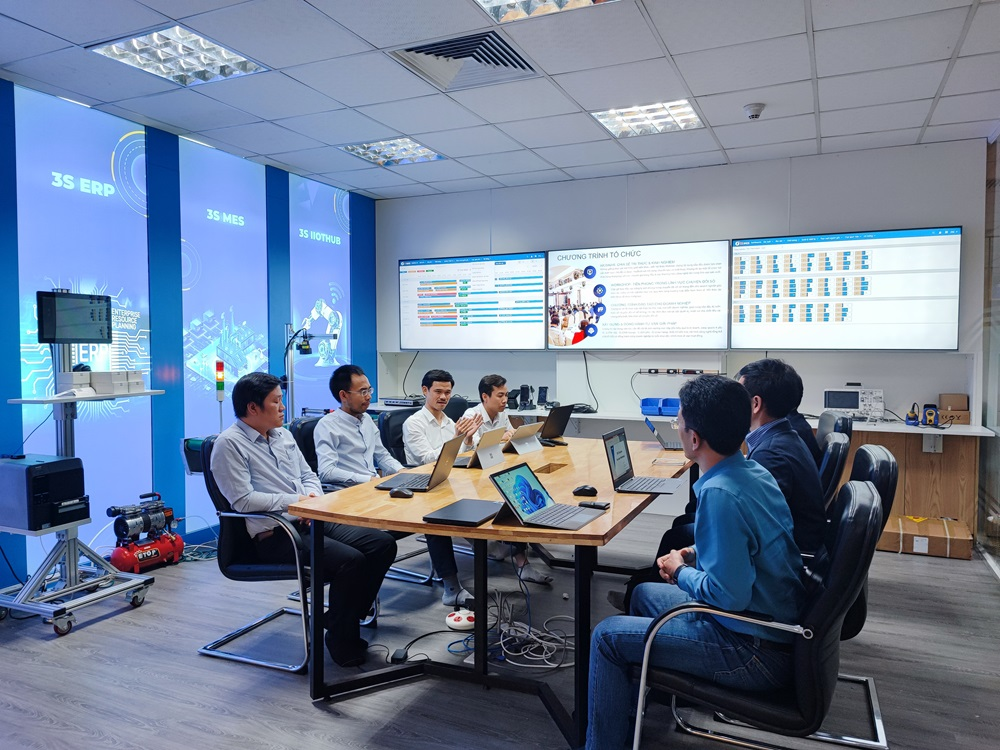In today's digital age, ERP (Enterprise Resource Planning) systems have become an essential tool that helps businesses automate processes, enhance operational efficiency, and compete in the market. However, a question that always arises is: should a business implement an ERP system like Odoo on its own or hire a professional consulting team? The clear and convincing answer is that you should not "drive" it yourself but rather seek out experienced experts. Here are the reasons why.
1. Understand that business operations do not appear naturally
One of the biggest challenges of self-implementing Odoo is that businesses often lack knowledge of specialized operations as well as actual operational processes. Odoo's modules are very flexible and can be customized for various business models. However, to configure accurately, appropriately, and optimize processes, you need a deep understanding of your own business operations. If you do it yourself, it can easily lead to inappropriate configurations, suboptimal processes, and even cause operational disruptions, reducing efficiency.
2. Difficulties in analyzing and customizing the system appropriately
Unlike off-the-shelf software, Odoo requires the implementer to have the ability to analyze the specific needs of the business, design appropriate processes, and then configure and program additional modules if necessary. The technical skills of a self-implementer may not be sufficient to optimize the system, leading to significant data errors, module conflicts, and affecting the overall operations of the business.

3. Risks related to time and cost overruns
Self-implementation often takes more time than expected. You have to invest a lot of effort in training staff, testing, debugging, and you need to have a good understanding of software engineering and business processes. This extended time not only incurs high internal costs but also disrupts operations and reduces productivity. Meanwhile, hiring a consulting team will help the project stay on schedule, minimize delays, and get the software up and running sooner.
4. The risk of failure or incurring significant costs for repairs
An ERP self-implementation project can easily encounter serious configuration errors or inappropriate setups. Without sufficient knowledge to identify and address issues in a timely manner, businesses may fall into "pathological" data or process problems. At that point, the business must allocate more resources to repair, modify, or even redo everything, resulting in significant losses in time, costs, and reputation.
5. Hire experts to optimize long-term effectiveness
Consulting experts not only assist businesses with initial installation and configuration but also guide and train them on operational procedures, providing support throughout the operational process and adjusting the system as the business grows. As a result, the system is optimized, adapts well to reality, helps the business avoid major mistakes, and maximizes the benefits from the ERP investment.

6. Experts help mitigate risks and enhance sustainability
After the system is operational, businesses need to continuously update, optimize, and upgrade. This requires extensive skills and knowledge. A highly specialized consultant will help the business manage these changes easily, minimizing the risk of data loss, operational disruptions, or incurring high repair costs later on..
Conclusion
In the context of increasingly important digital transformation, ERP systems like Odoo are the "backbone" of business operations. While self-implementation may reduce initial costs, it comes with significant risks of wasting time and money, which can impact business activities. On the contrary, hiring a professional consulting team is the right path to ensure a systematic, appropriate, optimized, and sustainable long-term implementation.
Select the right consulting partner, with high expertise and a clear understanding of the business.
Why should you not deploy ODOO but should hire professional advice❓